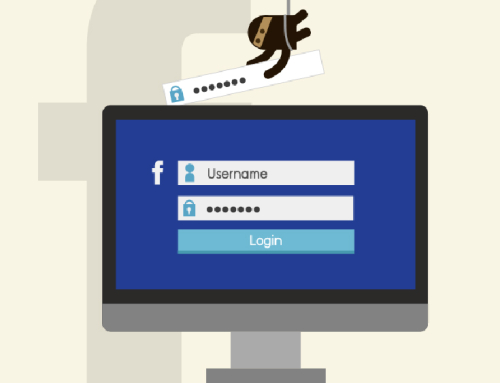Internet has made our lives easier in many ways but for a lot of parents it is a source of stress, not knowing what your child is doing on the internet is a huge concern for most parents. But before we discuss the details of how to ensure your child’s safety on the internet let’s do some fact checking.
Keeping Children Safe Online | FACT 1:
The vast majority of children believe they know more about the internet than their parents, yet an astonishing 43 percent still do not know how to use the “report abuse” safety button on social networking sites.
Keeping Children Safe Online | FACT 2:
One in seven children admit to having bullied someone online – often to try to fit in, a poll reveals. Others claim they turned to bullying to avoid becoming a target of abuse themselves. The charity Action For Children, which commissioned the survey, said many children bully others because of problems in their own lives.
As a parent, we all would like to keep children safe online – So let’s explore a few questions.
1. Why is it that within this online media, parents raise their hands in despair, admitting to our children? “You know far more than we do”. Yes they have some online skills but we as their parents and responsible adult, have life skills.
2. Do they consider who they are connecting with in any forum? Do they actually know the person? Have they met them and can they put a name and a voice to the face. If the answer to this question is, “I do not know the person!”, then the next question should be – why am I communicating with the person, and sharing information with this unknown person in an online person. If the same person arrived at the front door – would I let the person into my home?
3. The girl or boy that they have connected with from school. Do they talk to this person at school or only online? Why is there a difference? If they connect in the online world, why not in the offline world?
4. The images I’m sharing? Is this a normal behaviour that I would usually share in the public area?
Do any of these questions rely on our technical knowledge? I say no, these questions that form the foundation of our parenting in the online space rely on good old common sense. Judgement based on experience and life skills and these are certainly things we CAN pass onto our children. So I urge each and every parent to not abdicate responsibility to the old excuse of “he or she understands technology far more than I do”. Don’t hand over that power to a child or teenager. Every child and teenager needs guidance and we as their parents, should be able to share our life skills with a child as they explore new grounds. We have the very skills that our children need to protect them online.
So what can you do to bridge any technology gap and remove some of the murk from the digital waters?
My 10 tips for keeping children safe online
1. Talk, talk and talk some more and whilst doing this, continually improve your digital knowledge.
2. Computers do not belong in bedrooms. Encourage devices to be used in central family used areas.
3. Enable safe browsing and adapt search settings. (Set search settings. https://www.google.co.nz/preferences?hl=en-NZ&fg=1) Or investigate other options that are available to manage the internet feed into your home.
4. Set online time limits and discuss acceptable and unacceptable use areas or gatherings e.g. at the dinner table.
5. Monitor their social networking and be aware of the age restrictions on these sites. Understand that no one enjoys talking to their children about unsuitable content. But even with strong internet parental controls, your children can still be exposed to unsuitable images or content. Be prepared for this and think about how, in an age appropriate way, you are able to discuss this with them in a calm fashion
6. Make Google your friend and if you do not understand something your child is talking about it, educate yourself. Google is your friend when it comes to improving your online and terminology knowledge.
7. Reward sensible online behaviour. Encourage your child to talk to you and ask for guidance or discuss problems they may encounter online. Use open ended questions to initiate the conversation – so what do your friends search for on Instagram? What are the trending Hashtags at the moment?
8. Don’t Rely Solely on ‘Parental Controls’. Once your children go to friends’ homes for a visit – those parental controls disappear.
9. Understand that any internet-connected device can have risks: mobile phones, WiFi-enabled handheld tablets
and gaming devices can be used maliciously as well, so treat them as you would a computer and discuss the risks with your children.
10. Online ‘Friend’ collecting is competitive. Kids proudly talk about the number of friends they have on their social networks. Popularity is the perceived key to social image. Discuss this with your children and encourage the return to the common sense principle of life and social connections. Why would you share your holiday pictures with a complete stranger? Would I invite an unknown person into my house or worse yet meet a stranger down a dark alley? Stranger danger should be alive and encouraged within our online connections. Understanding that sometimes pressure amongst these friends is the exact risk we need to prepare our children for. Children are more daring online, insulting others, posting revealing pictures, and getting personal with people they don’t know, fuelling cyberbullying and sexting.
Your children may spend a lot of time on the internet or social networking site but ultimately you are still their parent offering them love and guidance in a world that is evolving at a faster pace than any of us can comprehend. You are able to protect your children online. Trust in your instincts, start learning and keep the communication lines flowing.
Cathy Mellett, Director of Net Branding, is an online digital marketing specialist and mum. On a daily basis she encourages organisations to embrace their online marketing opportunities yet she is fully aware of the dangers that lurk within this medium for our children.






